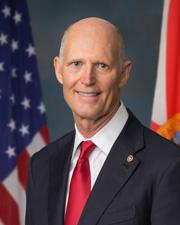0
0
0
Homeowners Premium Tax Reduction Act of 2025
2/6/2025, 1:08 AM
Summary of Bill S 35
Bill 119 s 35, also known as the Homeowners Insurance Premium Deduction Act, is a proposed piece of legislation that aims to amend the Internal Revenue Code of 1986. The main objective of this bill is to create a new above-the-line deduction for certain homeowners insurance premiums.
The bill specifies that eligible homeowners would be able to deduct a portion of their homeowners insurance premiums from their taxable income. This deduction would be available to individuals who itemize their deductions as well as those who take the standard deduction.
The deduction would apply to premiums paid for homeowners insurance policies that cover the primary residence of the taxpayer. It would not apply to premiums paid for insurance on rental properties or vacation homes. Supporters of the bill argue that providing a deduction for homeowners insurance premiums would help alleviate the financial burden of protecting one's home and belongings. They believe that this deduction would incentivize more homeowners to purchase insurance and ensure that they are adequately protected in the event of a disaster. Opponents of the bill raise concerns about the potential cost to the federal government of implementing this deduction. They argue that the deduction could disproportionately benefit wealthier homeowners who pay higher premiums, while providing little benefit to lower-income homeowners who may struggle to afford insurance in the first place. Overall, Bill 119 s 35 seeks to provide financial relief to homeowners by allowing them to deduct a portion of their insurance premiums from their taxable income. The bill is currently under consideration in Congress and its fate will ultimately be decided by lawmakers.
The bill specifies that eligible homeowners would be able to deduct a portion of their homeowners insurance premiums from their taxable income. This deduction would be available to individuals who itemize their deductions as well as those who take the standard deduction.
The deduction would apply to premiums paid for homeowners insurance policies that cover the primary residence of the taxpayer. It would not apply to premiums paid for insurance on rental properties or vacation homes. Supporters of the bill argue that providing a deduction for homeowners insurance premiums would help alleviate the financial burden of protecting one's home and belongings. They believe that this deduction would incentivize more homeowners to purchase insurance and ensure that they are adequately protected in the event of a disaster. Opponents of the bill raise concerns about the potential cost to the federal government of implementing this deduction. They argue that the deduction could disproportionately benefit wealthier homeowners who pay higher premiums, while providing little benefit to lower-income homeowners who may struggle to afford insurance in the first place. Overall, Bill 119 s 35 seeks to provide financial relief to homeowners by allowing them to deduct a portion of their insurance premiums from their taxable income. The bill is currently under consideration in Congress and its fate will ultimately be decided by lawmakers.
Congressional Summary of S 35
Homeowners Premium Tax Reduction Act of 2025
This bill establishes a new deduction of up to $10,000 claimed against gross income (above-the-line tax deduction) for annual policy premiums paid or incurred for homeowners insurance on an individual's principal residence.
Read the Full Bill
Current Status of Bill S 35
Bill S 35 is currently in the status of Bill Introduced since January 8, 2025. Bill S 35 was introduced during Congress 119 and was introduced to the Senate on January 8, 2025. Bill S 35's most recent activity was Read twice and referred to the Committee on Finance. as of January 8, 2025
Bipartisan Support of Bill S 35
Total Number of Sponsors
2Democrat Sponsors
0Republican Sponsors
2Unaffiliated Sponsors
0Total Number of Cosponsors
0Democrat Cosponsors
0Republican Cosponsors
0Unaffiliated Cosponsors
0Policy Area and Potential Impact of Bill S 35
Primary Policy Focus
Alternate Title(s) of Bill S 35
A bill to amend the Internal Revenue Code of 1986 to create an above the line deduction for certain homeowners insurance premiums.
A bill to amend the Internal Revenue Code of 1986 to create an above the line deduction for certain homeowners insurance premiums.
Comments
Sponsors and Cosponsors of S 35
Latest Bills
Providing for consideration of the bill (H.R. 2550) to nullify the Executive Order relating to Exclusions from Federal Labor-Management Relations Programs, and for other purposes.
Bill HRES 432December 11, 2025
Southcentral Foundation Land Transfer Act of 2025
Bill HR 3620December 11, 2025
Enduring Justice for Victims of Trafficking Act
Bill S 2584December 11, 2025
VSAFE Act of 2025
Bill S 2683December 11, 2025
Veterans National Traumatic Brain Injury Treatment Act
Bill S 2737December 11, 2025
CARING for Our Veterans Health Act of 2025
Bill S 2397December 11, 2025
Health Records Enhancement Act
Bill S 2333December 11, 2025
RESPECT Act of 2025
Bill S 2807December 11, 2025
Review Every Veteran’s Claim Act of 2025
Bill S 1657December 11, 2025
ARCA Act of 2025
Bill S 1591December 11, 2025
